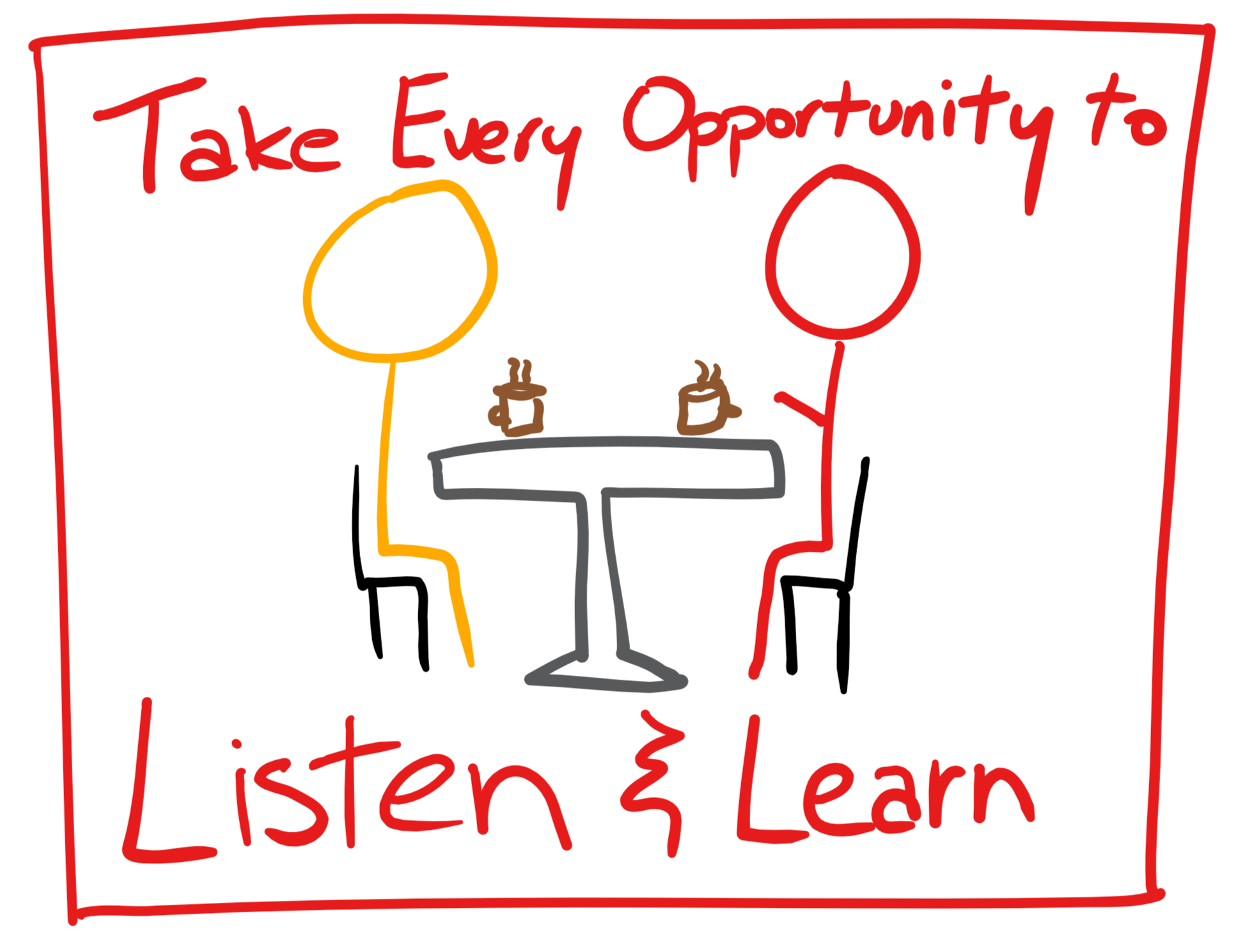This is a personal story about embracing my fear of being a terrible leader, and how humility helped me to learn, grow and lead.
In my last role, I joined a team full of incredibly smart and talented individuals They all had their own unique personality, but each of them had a single attribute in common: an unrelenting, unquenchable thirst to master their domain at every opportunity. Whether that is a deep technical understanding of our platform or the drive to become our clients' unquestionable trusted advisor, my colleagues were smart, hungry, and humble.
And I'm proud to say I'm the dumbest person in the group.
I had the privilege of being the leader, but I constantly felt this sense of "not being good enough" when stacked against my colleagues. They all had hands-on experience with the platform. They all worked directly with clients every day. How am I remotely qualified to lead this group of talented people and help them develop, grow, and find career bliss?
Left to my devices, I could have easily spiralled into a depressive funk. Worst off, I could have been the embodiment of Steve Job's famous quote "A players hire A player, B players hire C players". Turtling into an introverted shell wouldn't do me any good, and definitely would have been incredibly detrimental to my team.
I had a very personal chat with my manager at the time, and he suggested one thing (Paraphrasing, as this was a while ago...):
Embrace the fact that you don't know everything. Be humbled by it.
The two key words are "Embrace" and "Humbled". I can run away from my own insecurities and fears. I can choose to put up a facade and carry on without learning. What I did was I chose to confront my insecurities, and I chose to be humbled by exposing them to my team. Looking back, I did fours things that a lot of leaders would be afraid to do, but to this day I do not regret doing them:
- I told my team that I felt inferior to them, and that gave them permission to teach me what I need to know. I literally sat down with my senior team members and told them I was going to be the dumbest person in the room, and that I will have to lean on them to make good decisions. I also told my junior team members the same thing, and that I would improve and learn along with them. I did that because I wanted the team to see leadership, not as an ivory tower power dynamic, and that being a leader doesn't make someone infallible. Having these discussions with my team was incredibly difficult for me, but over time those conversations became more and more natural. No one likes to admit deficiencies, but it was important for me to be honest with myself and my team.
- I focused on the things that I can truly scale the team, like hiring and inter-team communications. One of my colleagues repeatedly told me that it was imperative that I not "own" any clients because that doesn't help the team scale as much as augmenting the team with new talent and resources. If the team is focused on being great relationships with the clients, then my job as a leader is to create a team environment that really supports and encourages them. I decided to work on ensuring the team workload is healthy (e.g. hire more people or structure for efficiency), creating better communication with the rest of the organization (e.g. ensure fluid communications with product/sales/support teams), and building metrics that we can effectively measure ourselves on.
- I offered to help my team develop as empathetic leaders and thinkers. I'd like to think my leadership style is one that is rooted in empathy. To be an empathetic thinker is to keep asking questions rather than impose thought on others, and to be an empathetic leader is to help rather than dictate. I listen, I offer advice, I ask questions, and I ultimately help. I help others develop perspective and communication strategies in hopes that they can one day use those same attributes to help others. In short: I ask my colleagues how I can help so they can ask others the exact same question.
- I encourage team members to mentor each other. I would never be the right person to teach about our technical platform, and I wouldn't subject my team to substandard learning. Being humble means knowing what my limits were, and bringing in others to help fill those gaps. I asked my colleagues in my team to run sessions on technical topics, colleagues from adjacent teams to talk about subject matter that was foreign to all of us. Most of all, I participated and learned alongside my team and never harbouring the attitude that "the knowledge is for them, not for me".
Becoming a leader, for me, really exposes how much I don't know about the art and science about leadership. Admitting my deficiencies, apologizing for my failures, and regrouping stronger is a continuous cycle that I subscribe to when leading a team of experts that know a heck of a lot more than you. Without humility, it is crazy difficult to even start the cycle, let alone live it over and over again.



